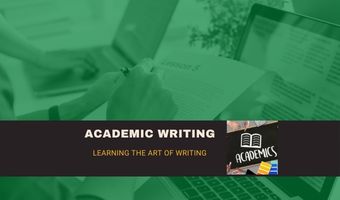DURATION: 1.5 HRS
DESCRIPTION
This module focuses on distinguishing between formal and informal writing and foregrounds the manifest characteristics of informal modes of writing. Keeping in mind the requirements of learners for whom English is a second language, it also highlights colloquial and slang expressions as elements to be avoided in academic writing.
LEARNING OUTCOMES:
In this module, the students will learn to
- Differentiate between formal and informal writing,
- Distinguish between informal, slang and colloquial languages,
- Differentiate between texts on the basis of their purposes.
KEY QUESTIONS:
In this module, the students will explore the following key questions:
- What do we mean by formal and informal language?
- What sorts of language do they generally have access to on a day to day basis?
- How can one avoid using slang and colloquial expressions in academic writing?
- What is meant by error and mistake?
- How can we determine whether a text is formal or informal?
MODULE CONTENT:
- Introduction: What not to do in academic writing
- How to distinguish between formal and informal writing
INSTRUCTIONAL STRATEGIES:
- Pre-recorded lectures
- Pdf/PowerPoint/Lecture Notes
- Worksheets
- Reference Materials
ONLINE LINKS:
- How to Use Formal and Informal English - English Speaking and Writing Fluency - YouTube
- Slide 1 (flinders.edu.au)
- Formal and informal language - English Grammar Today - Cambridge Dictionary
ASSIGNMENTS:
The participants of this module will
- Discuss with their teacher what problems they face while engaging in academic writing;
- Fill a worksheet wherein they will give examples of colloquial, slang and informal expressions prevalent in their respective contexts;
- Read multiple kinds of texts and identify formal/informal components of writing within them to determine their purpose;
- Submit an evaluation of the impact of what they learned from Unit 1 will have on their practice as they prepare for Unit 2.
.png)







